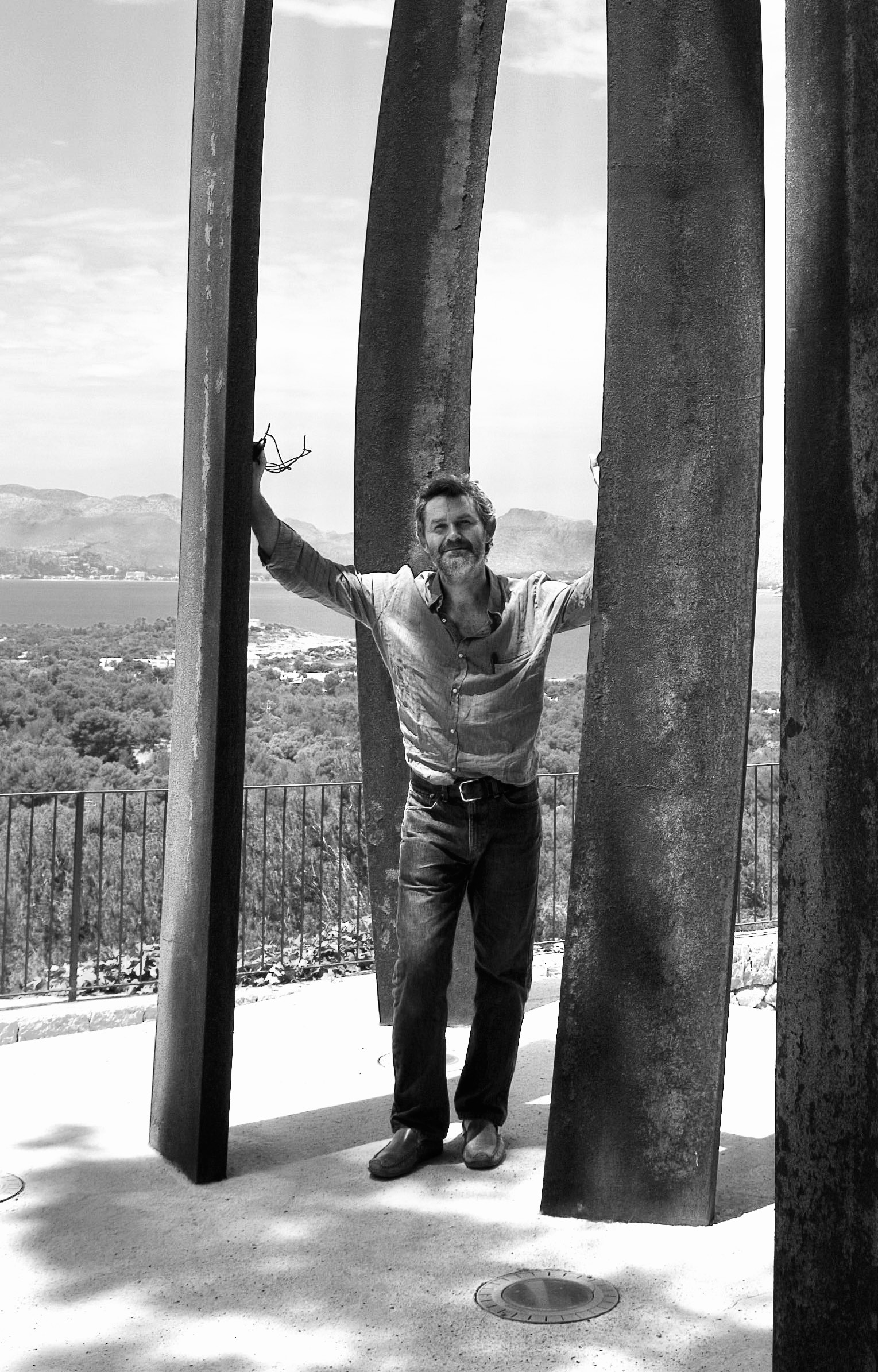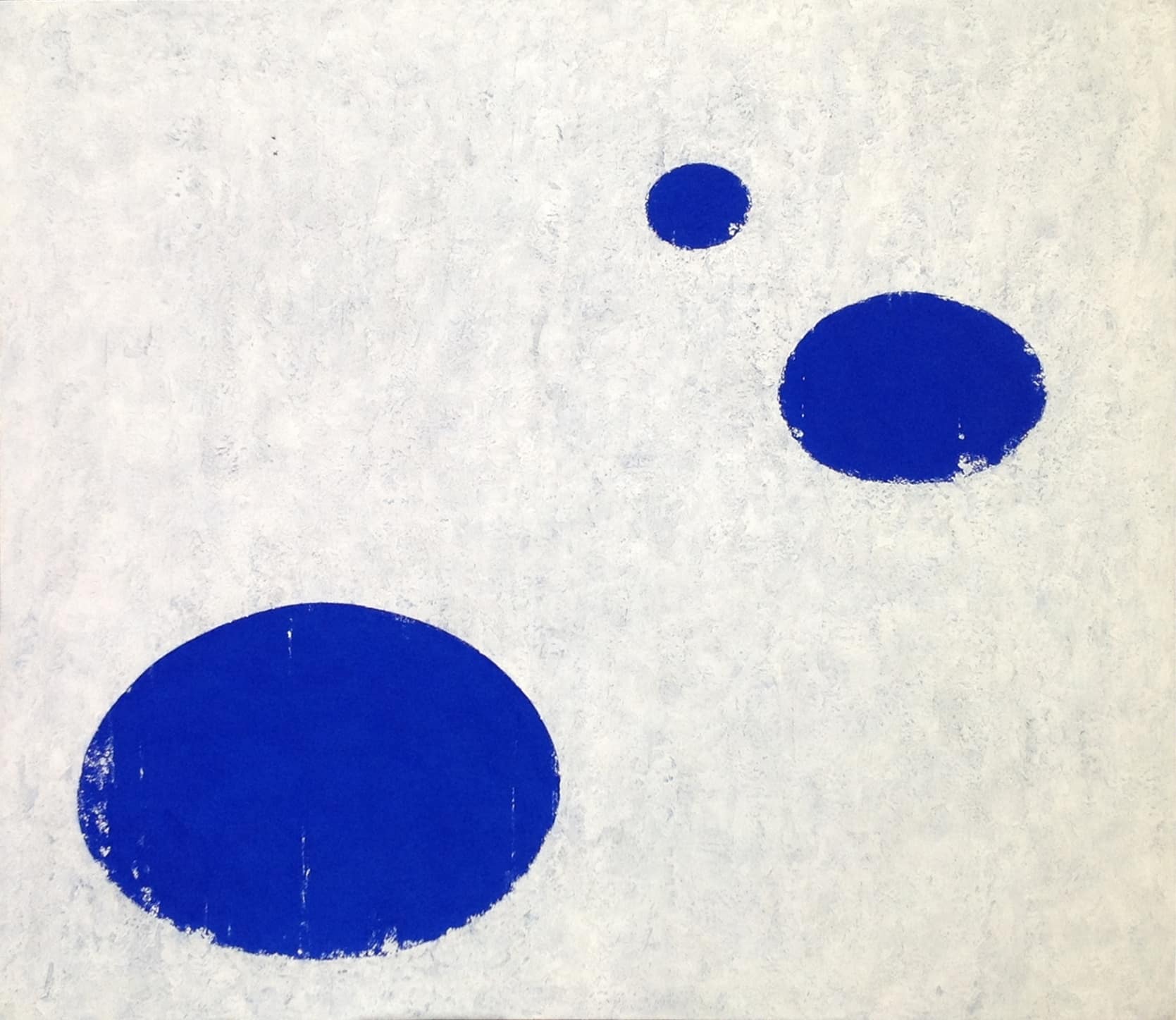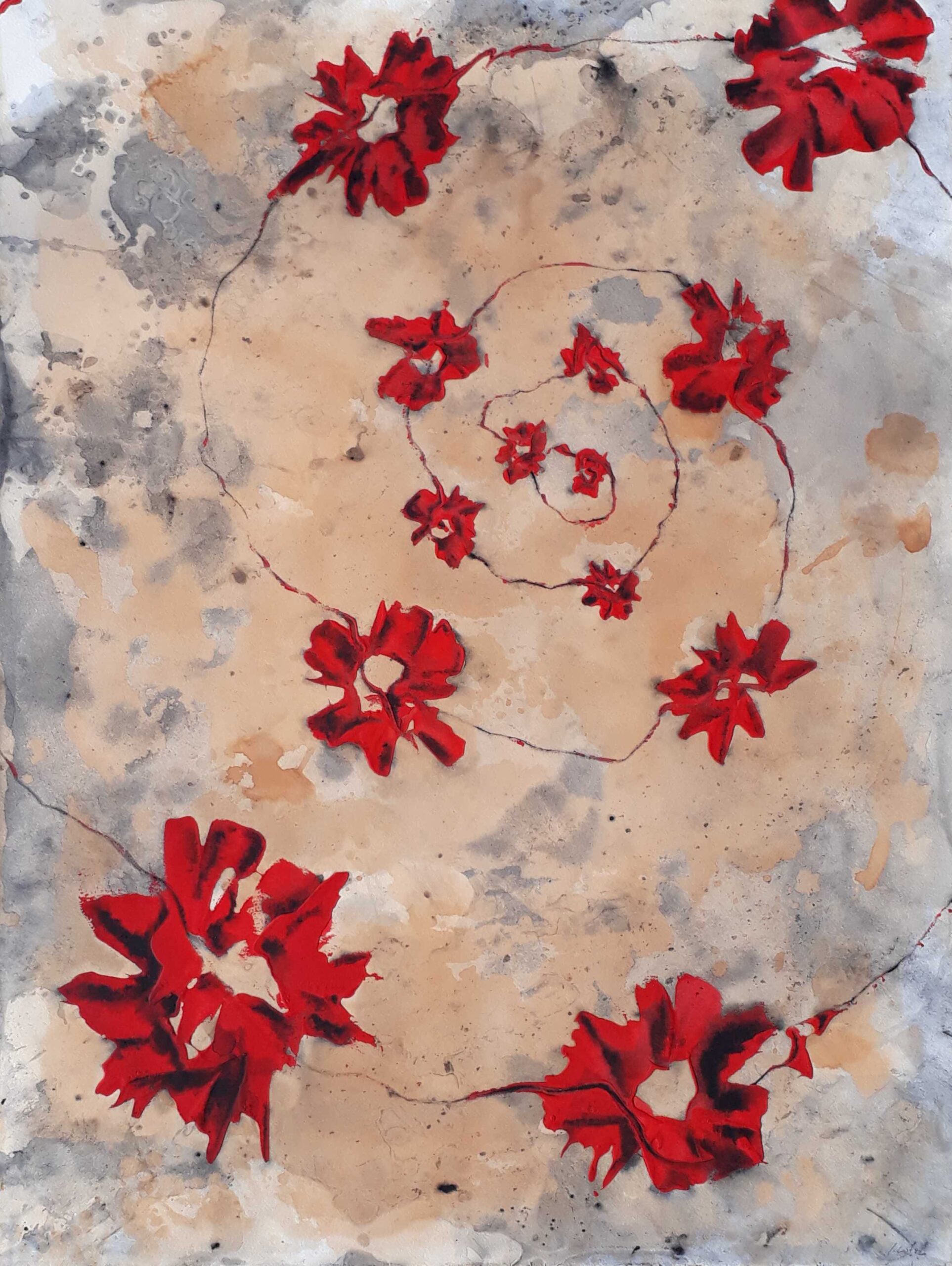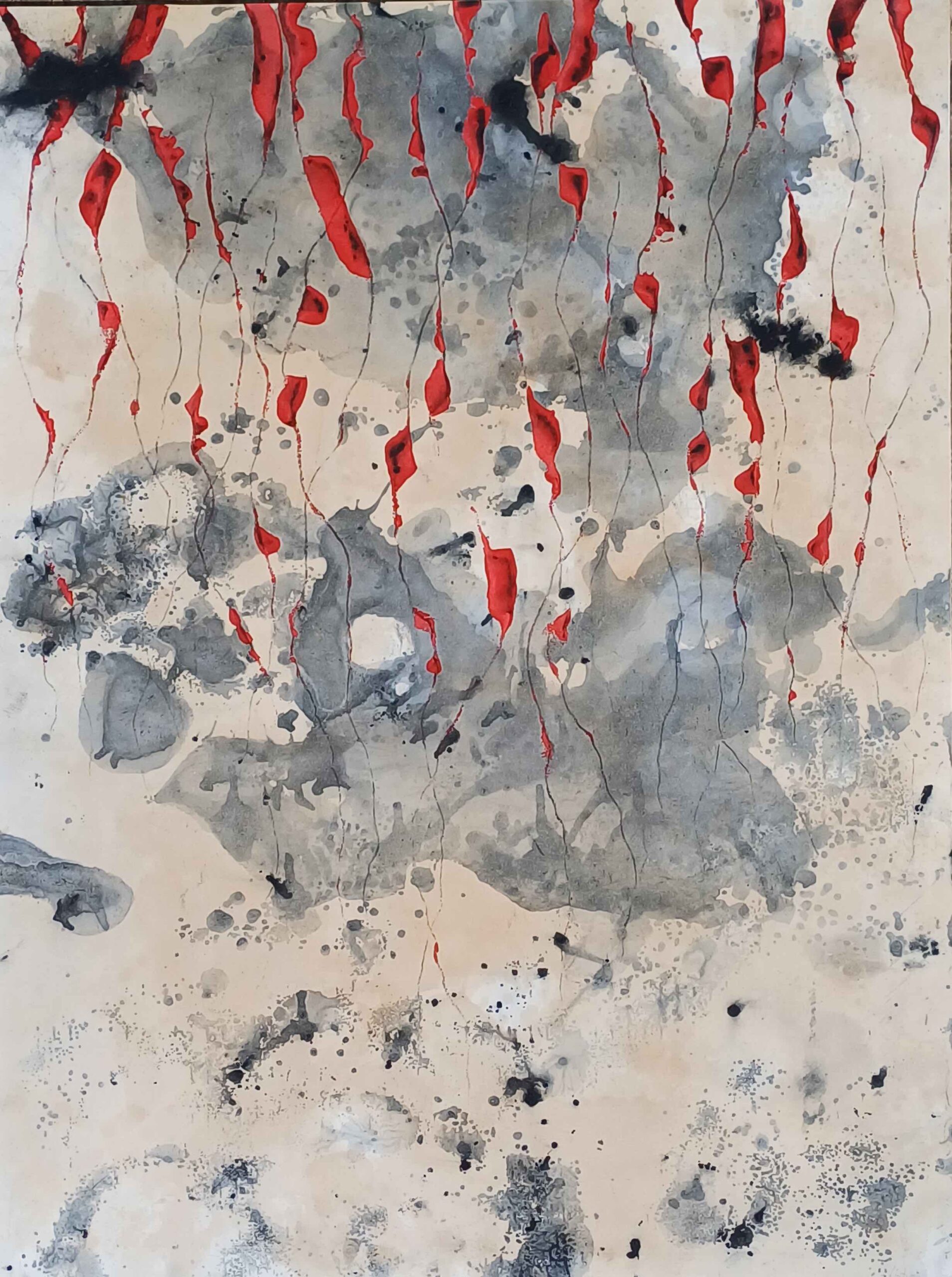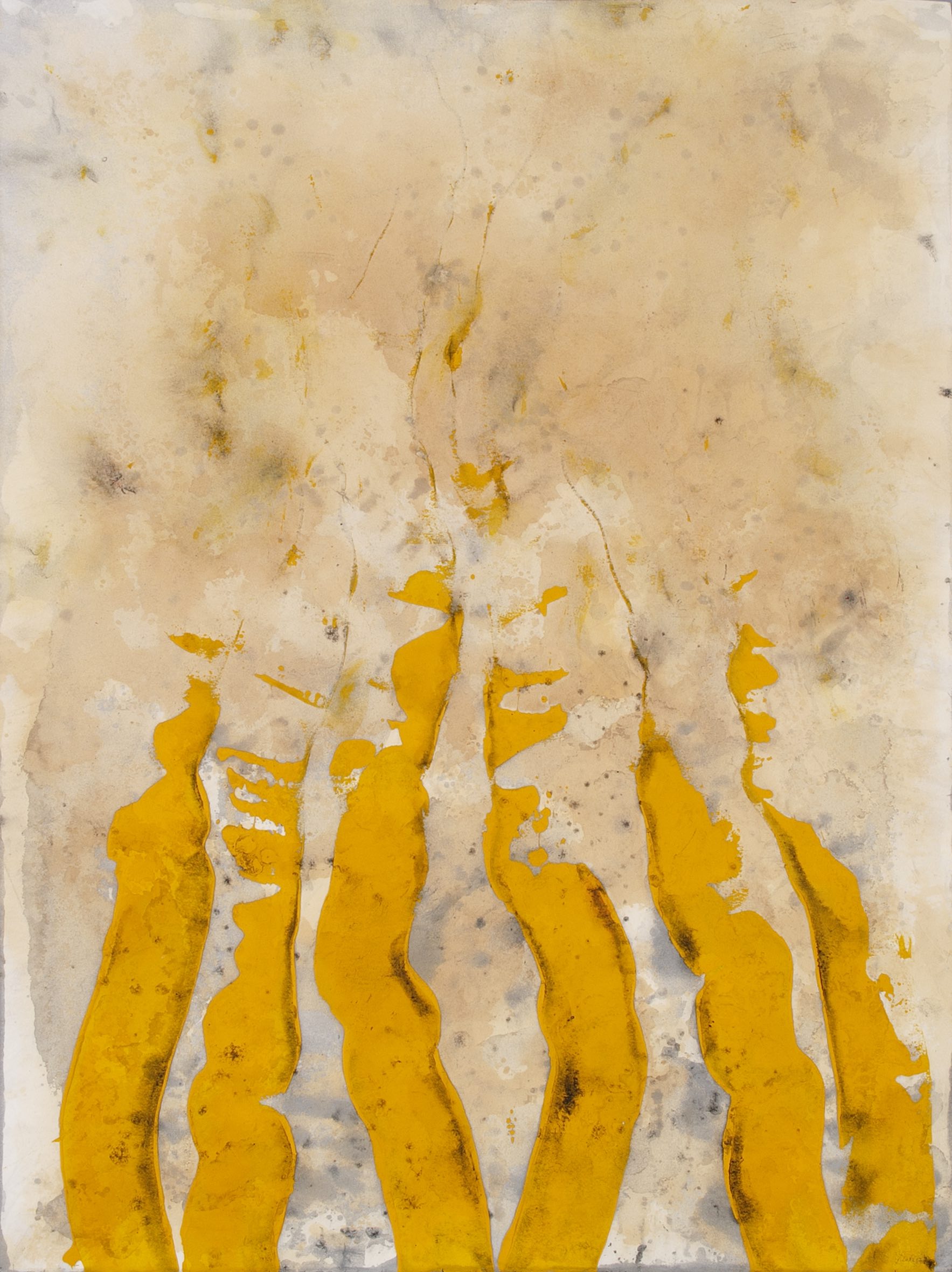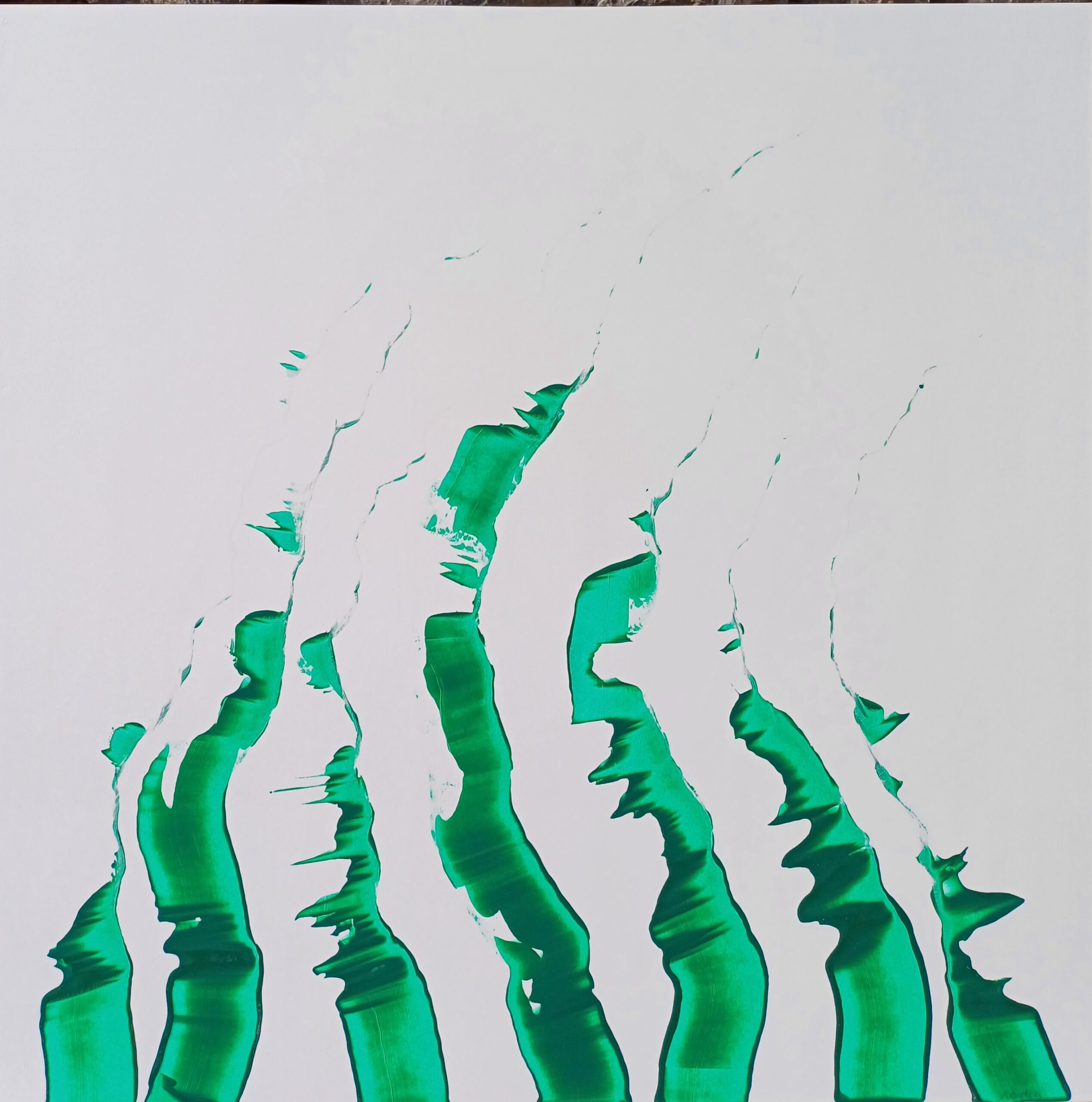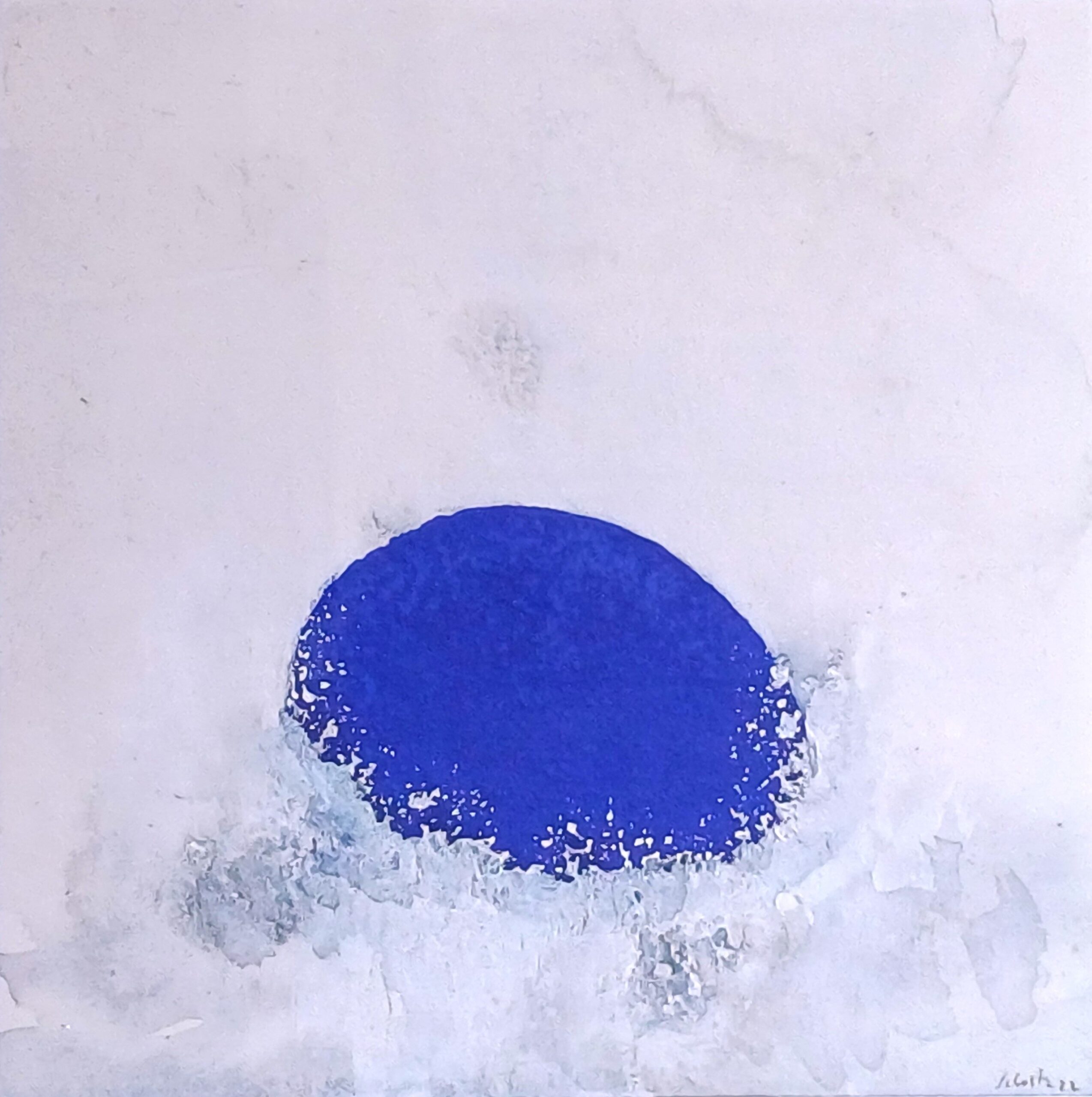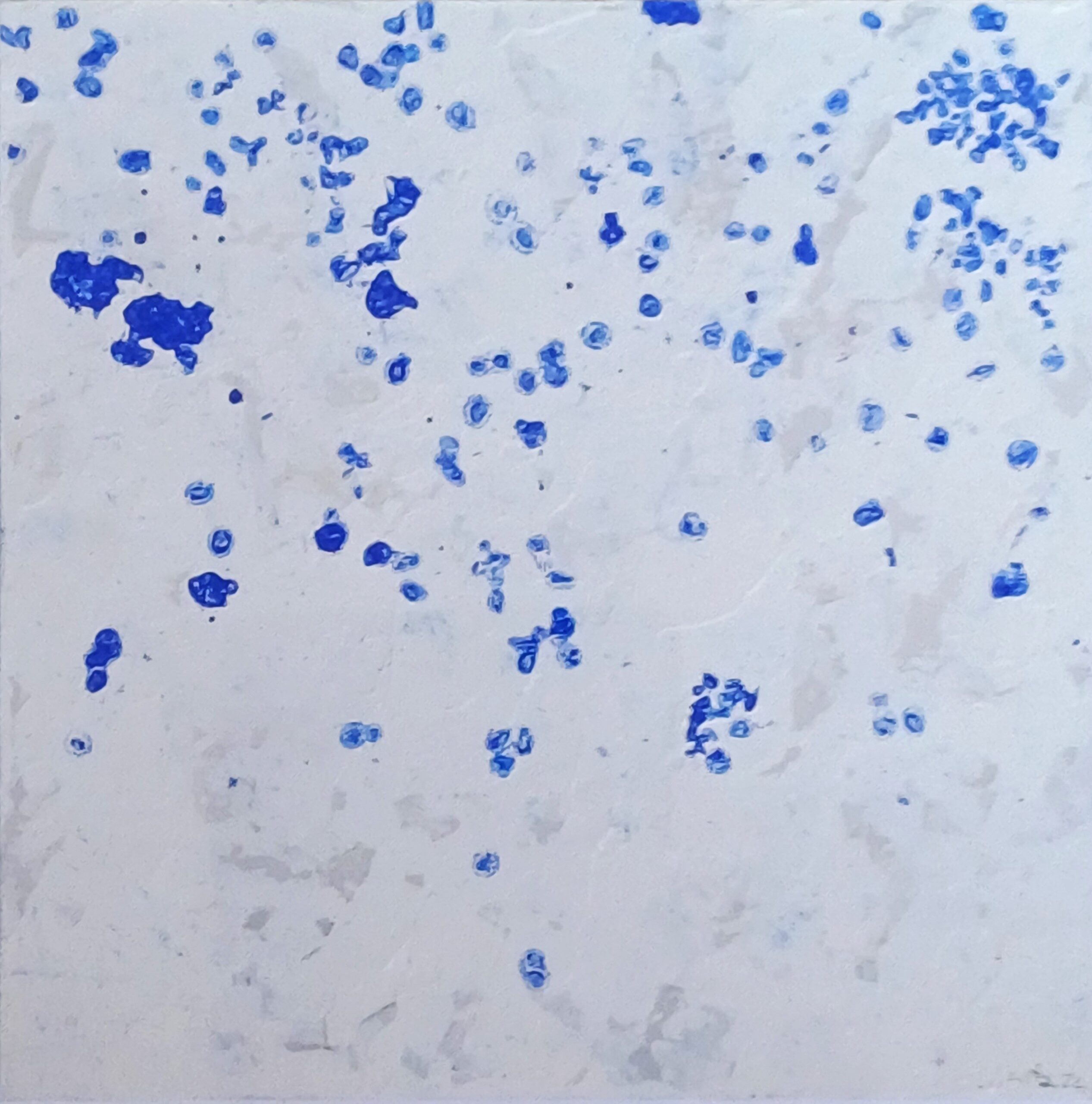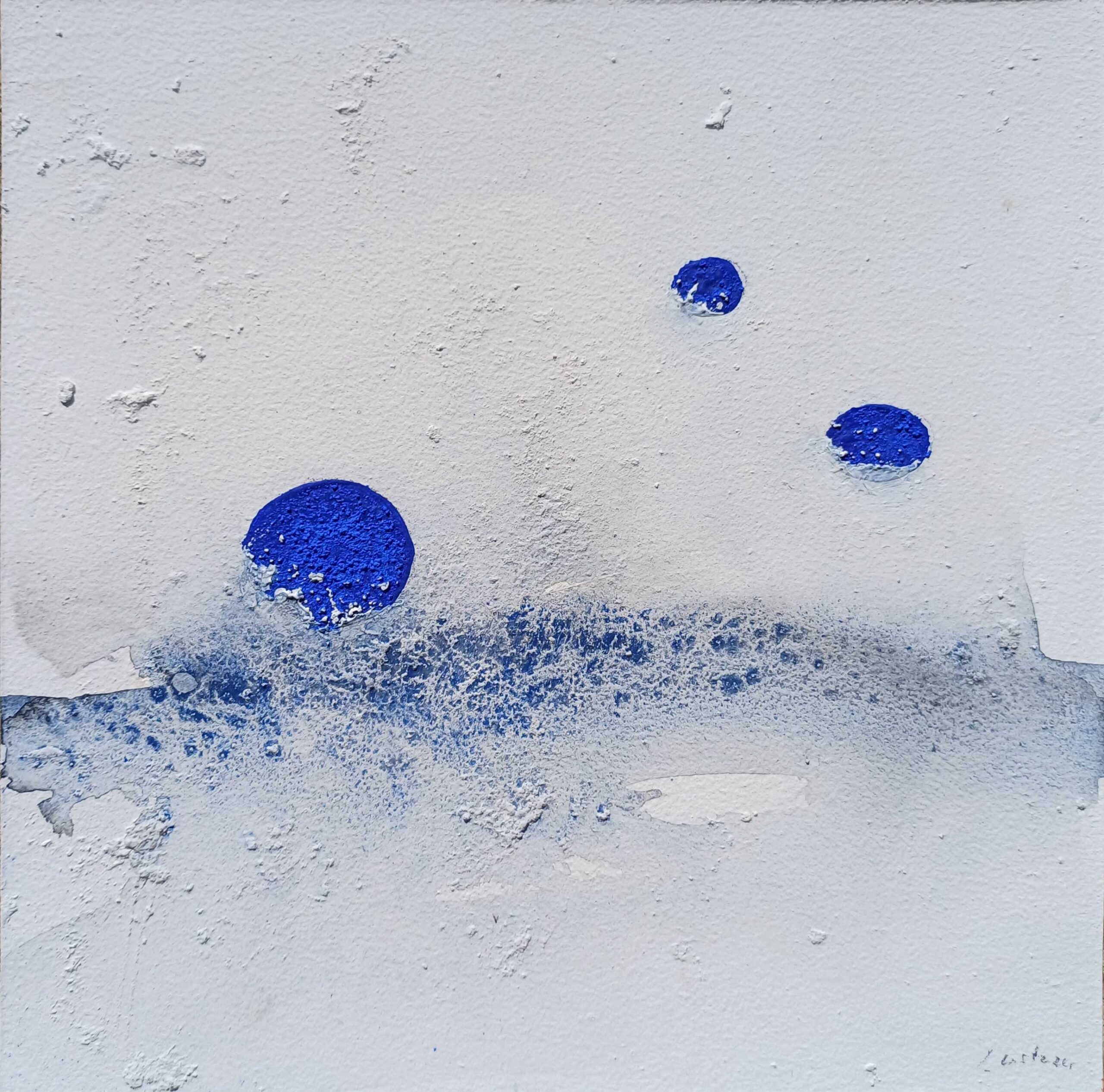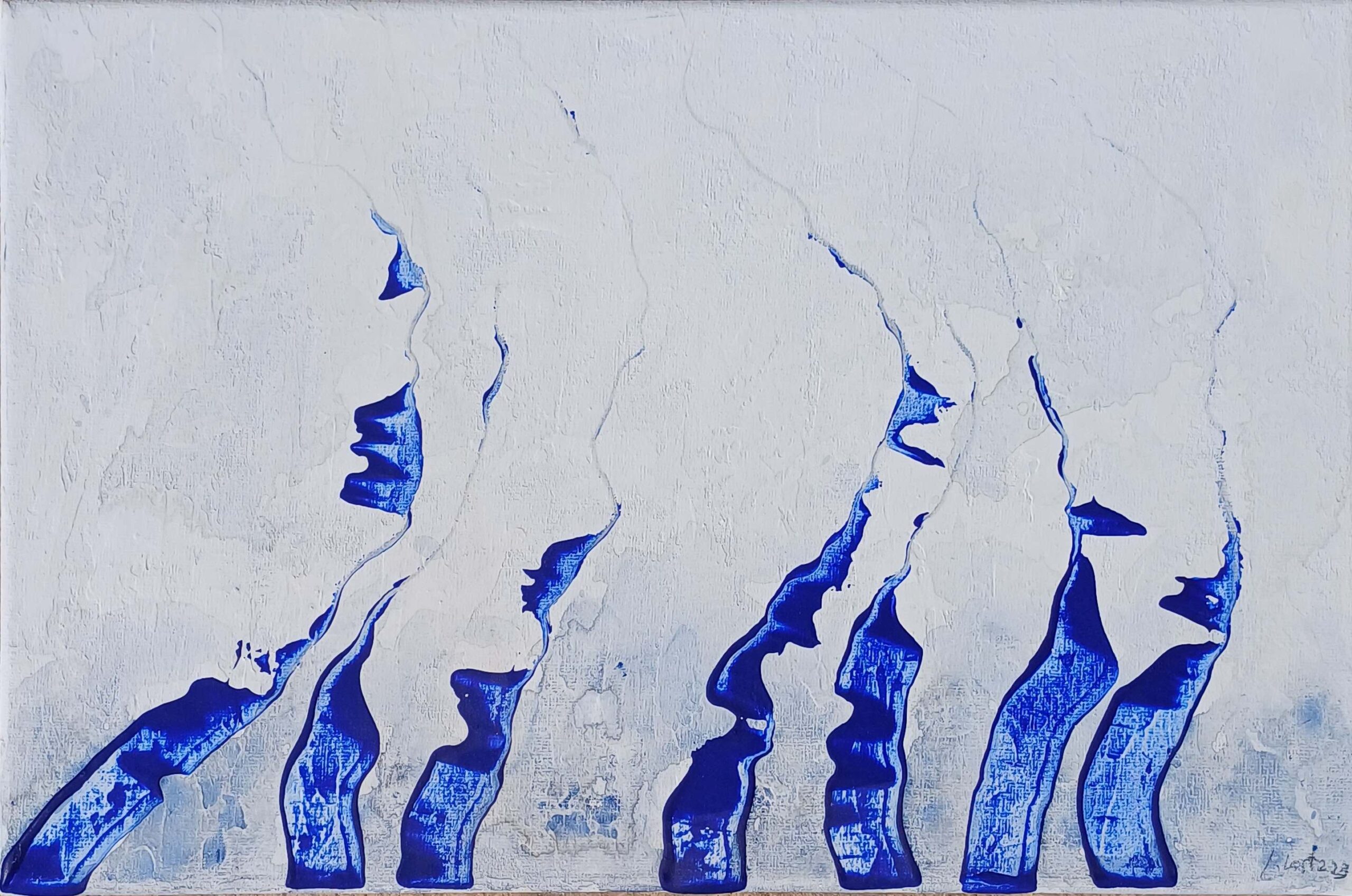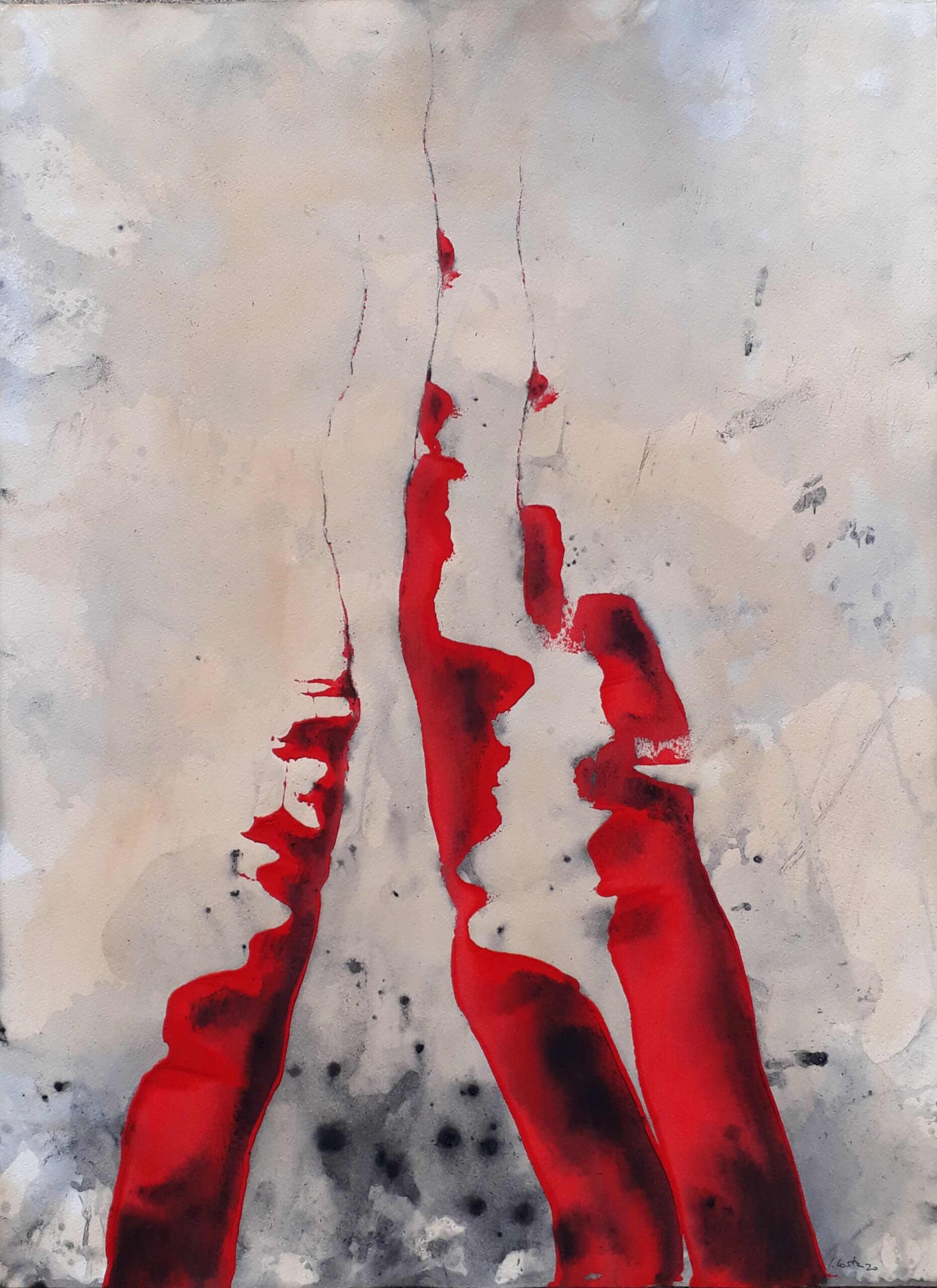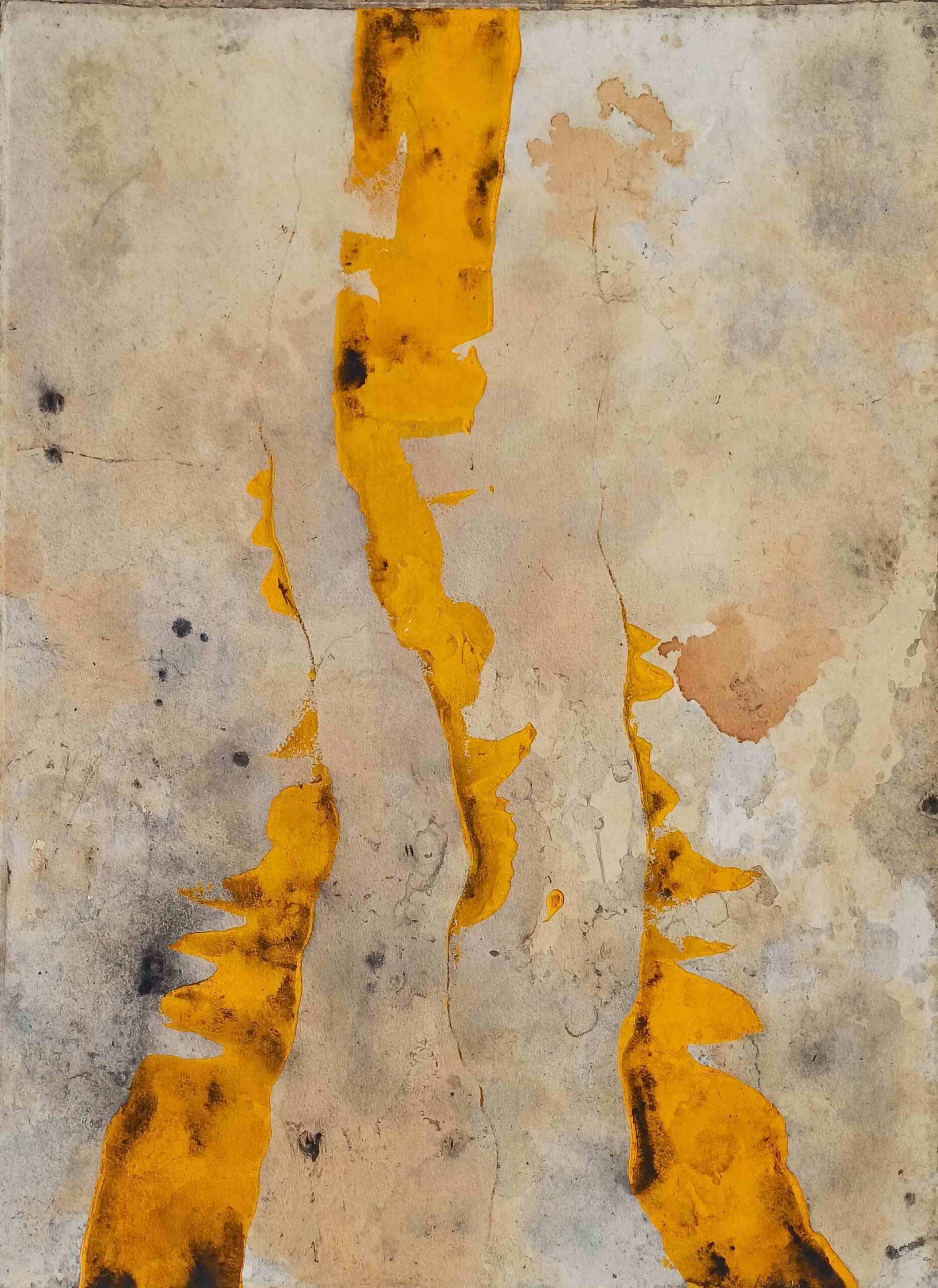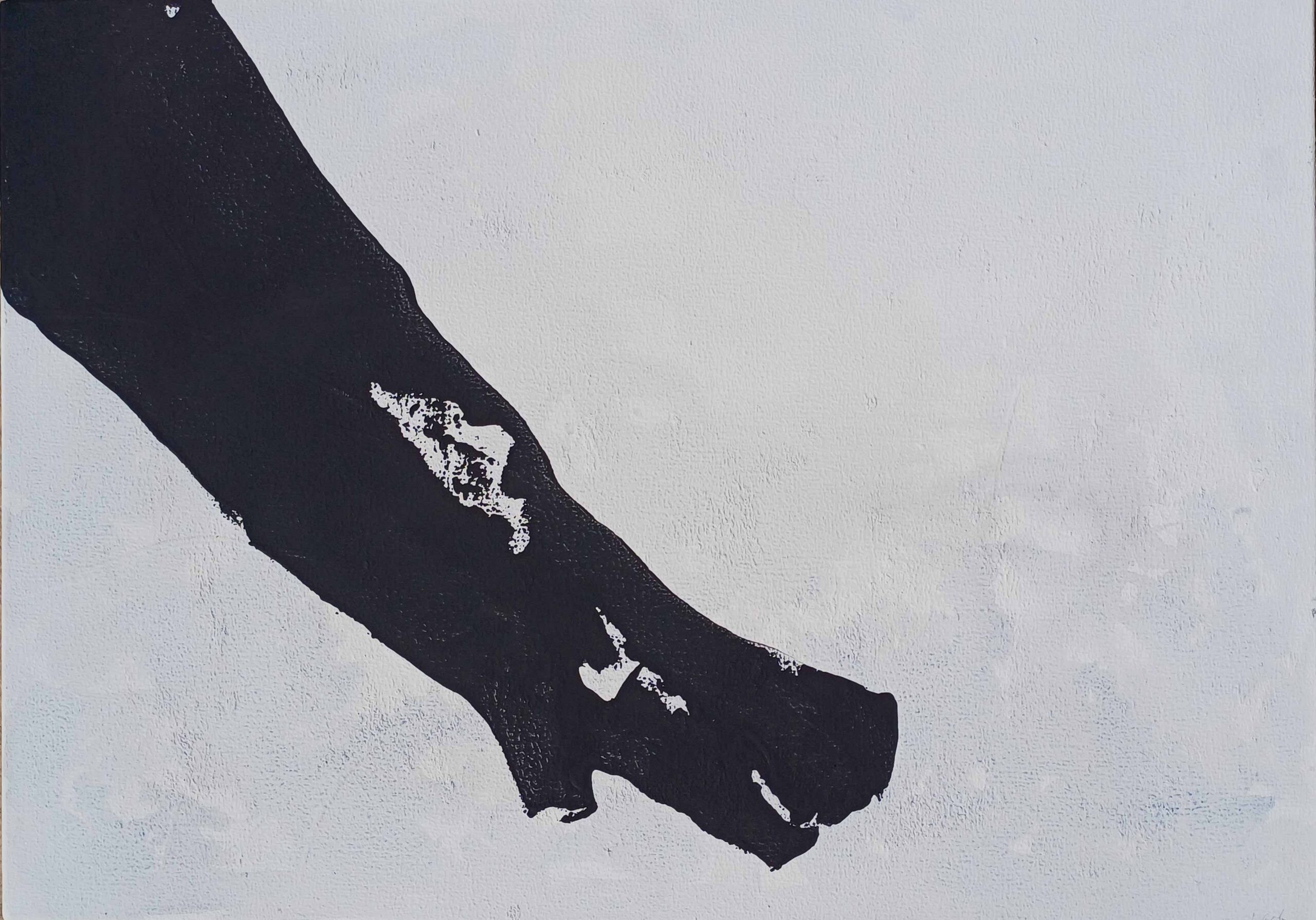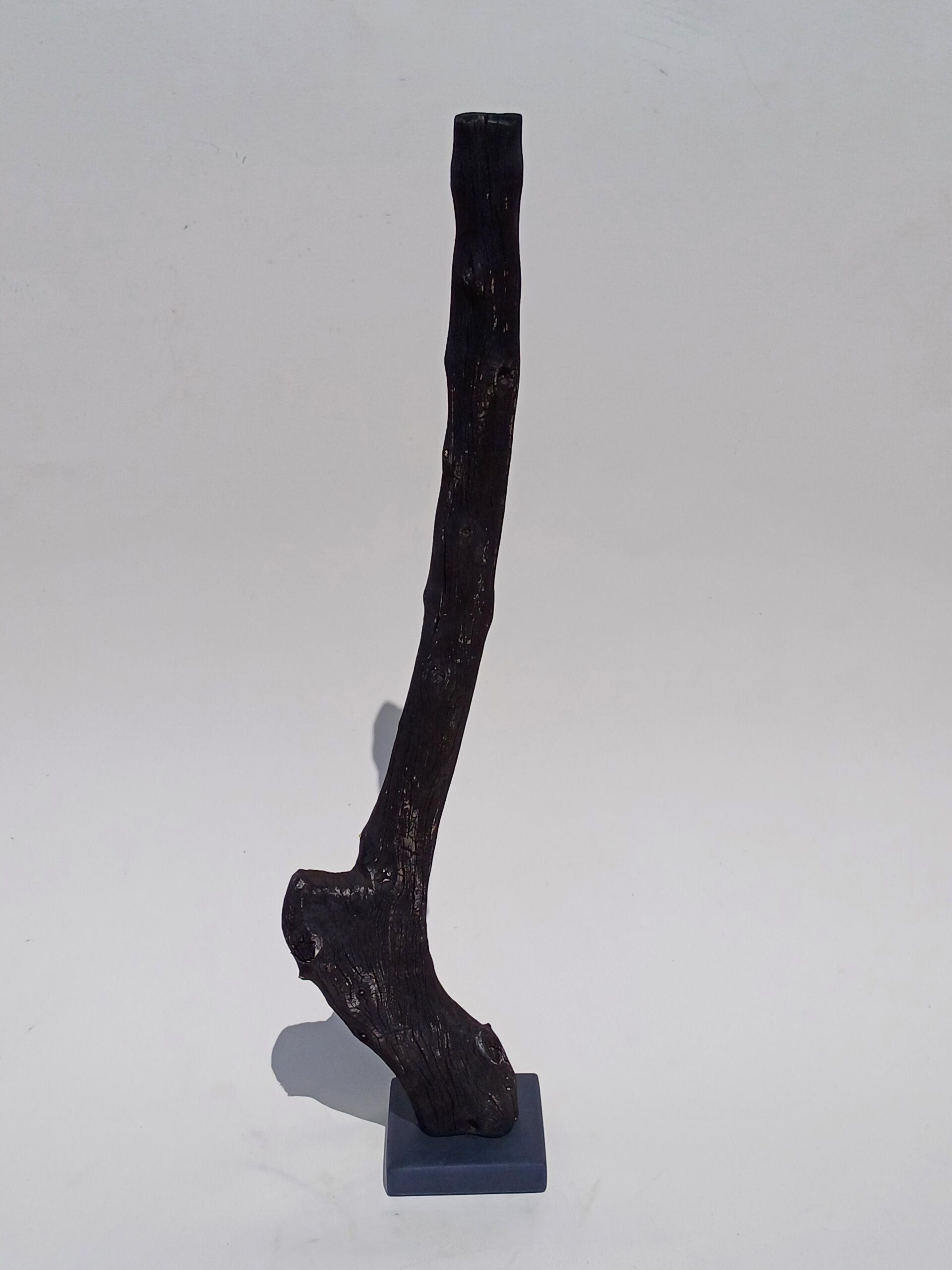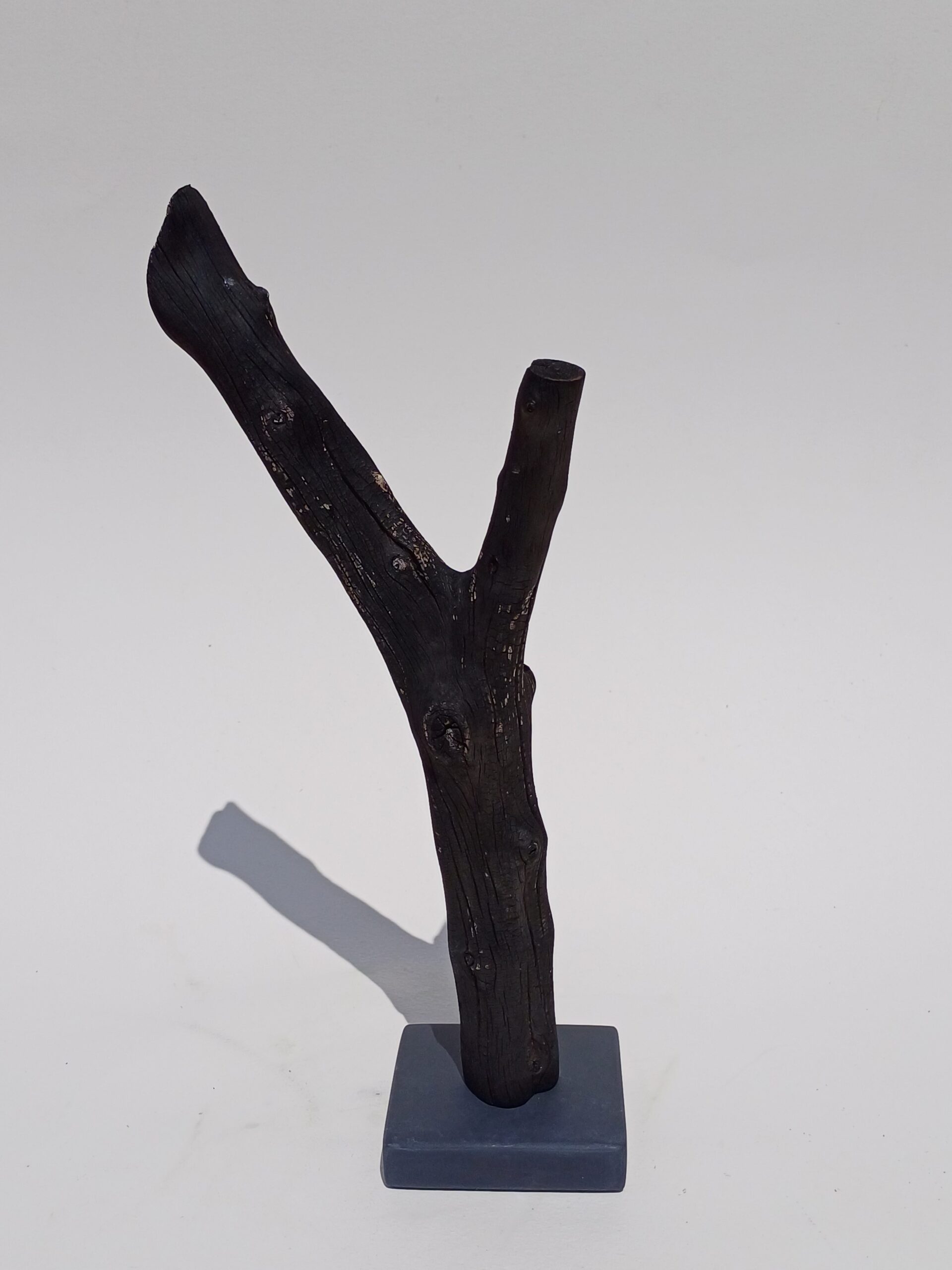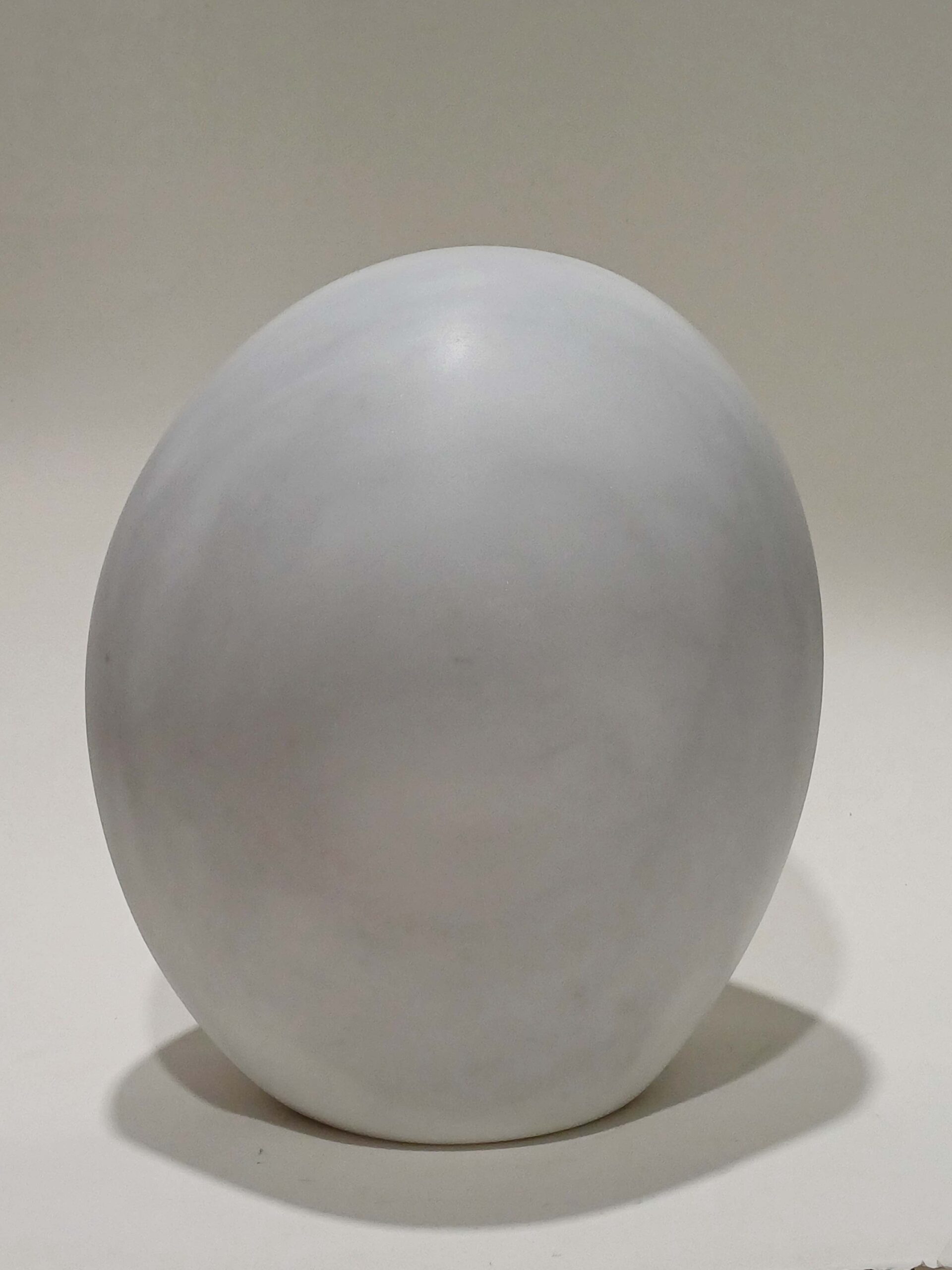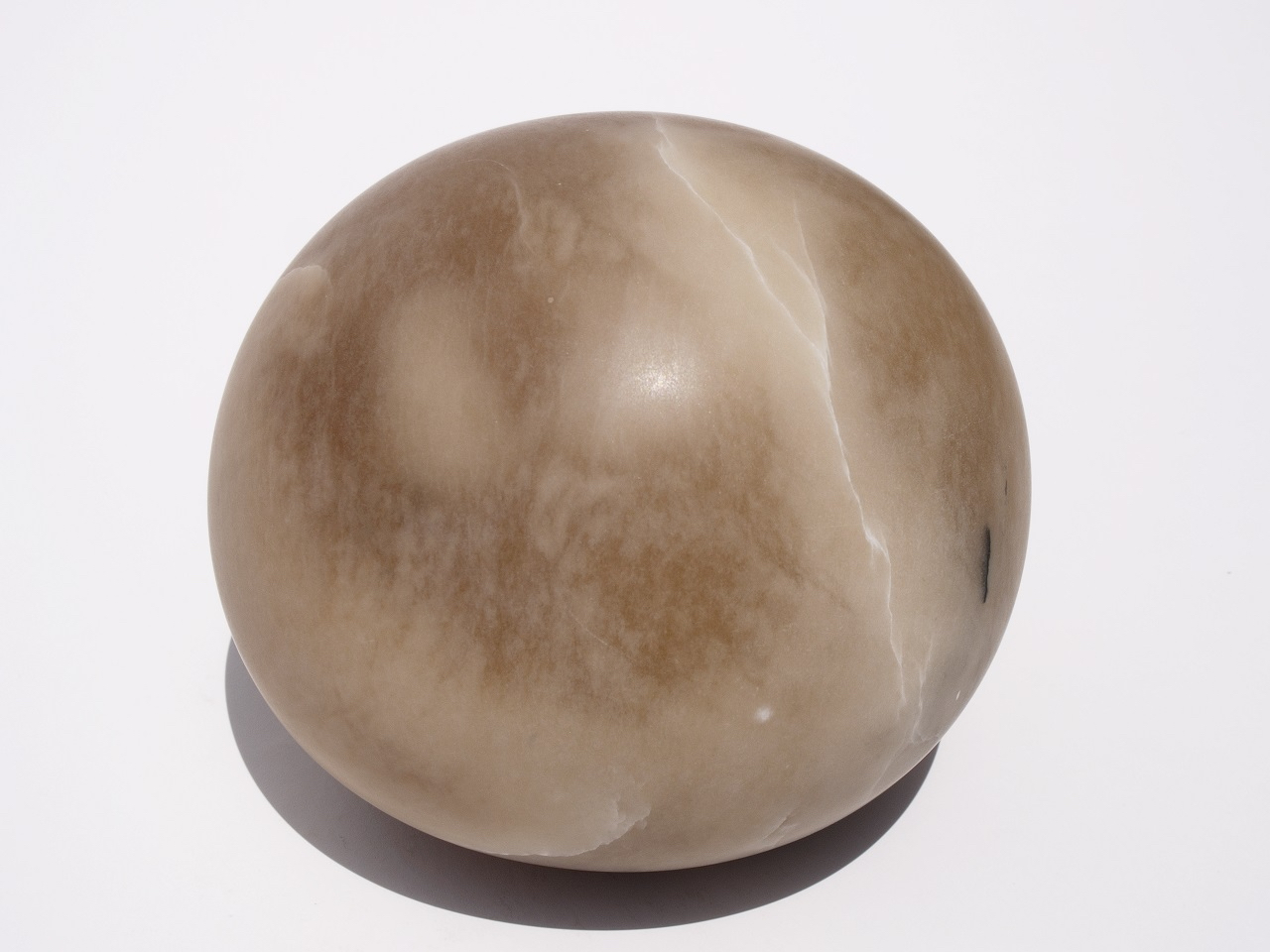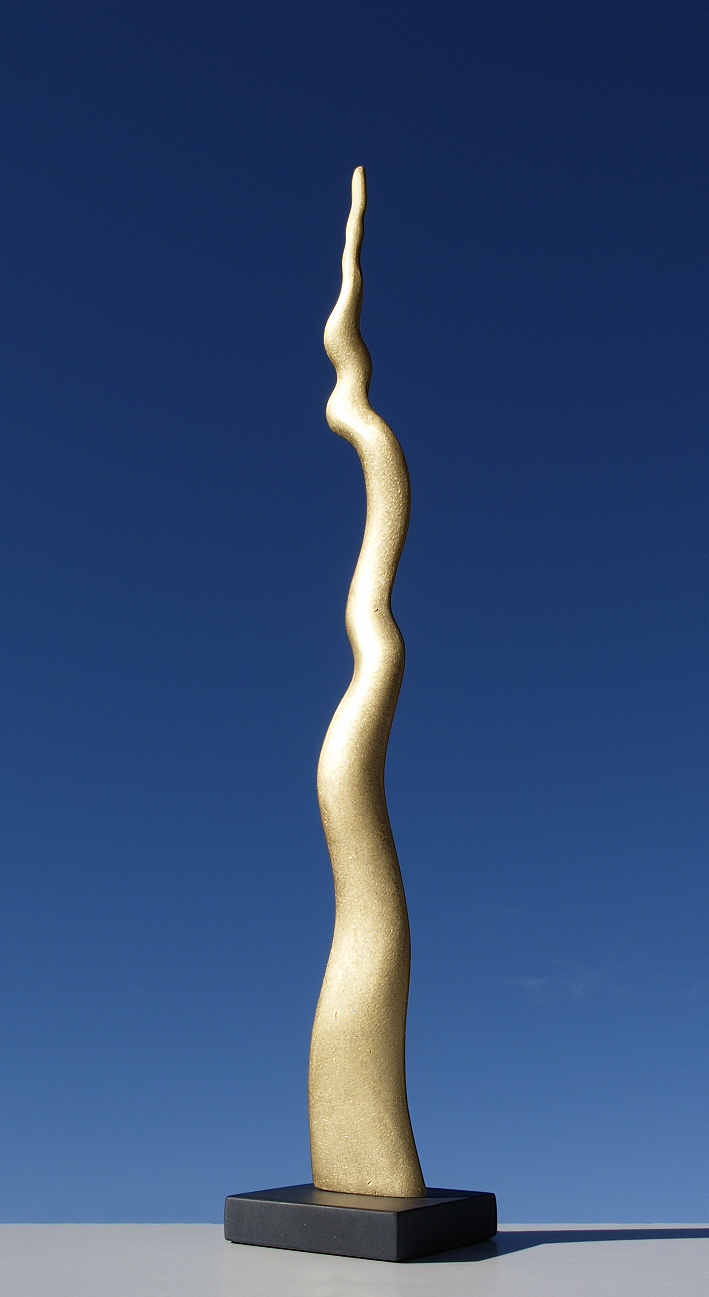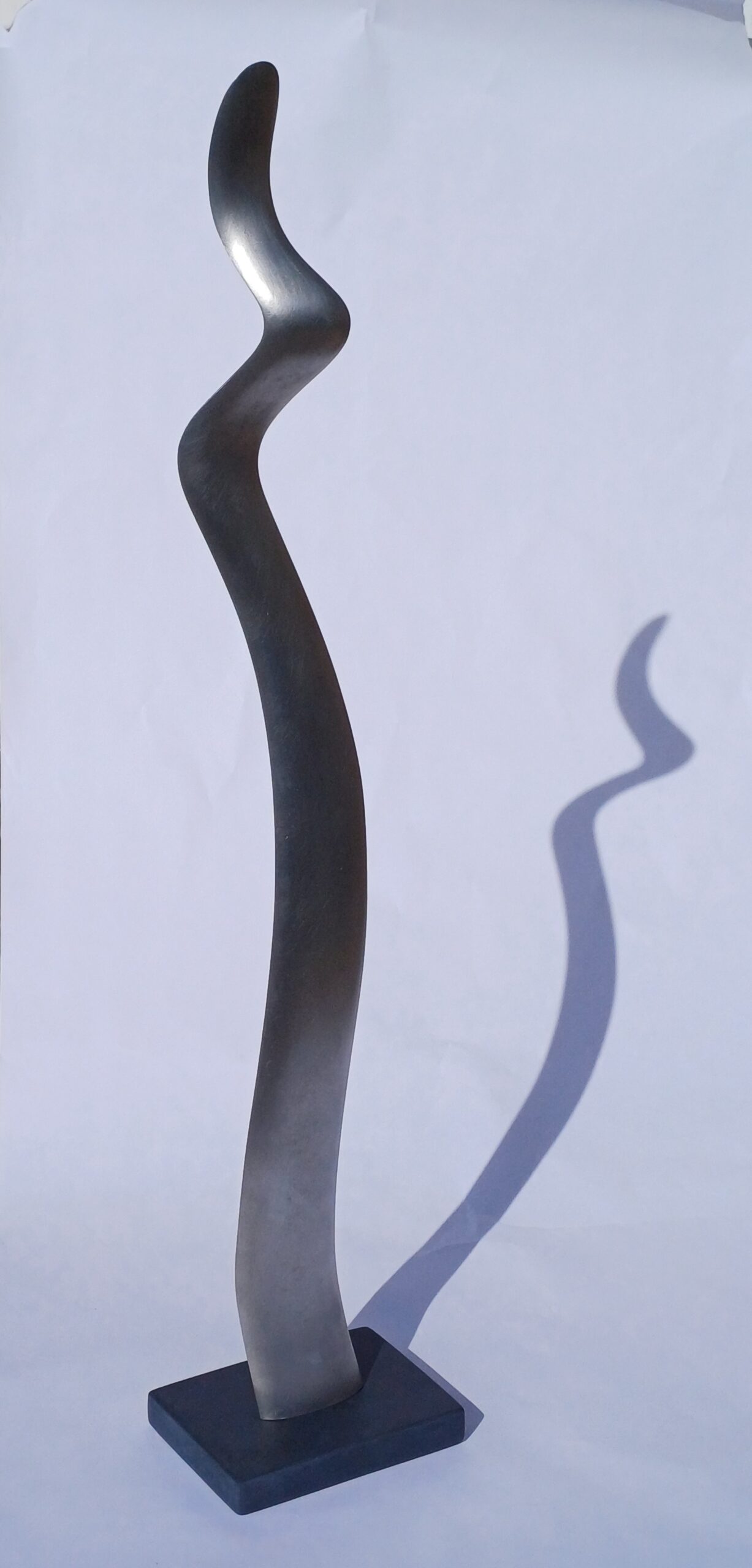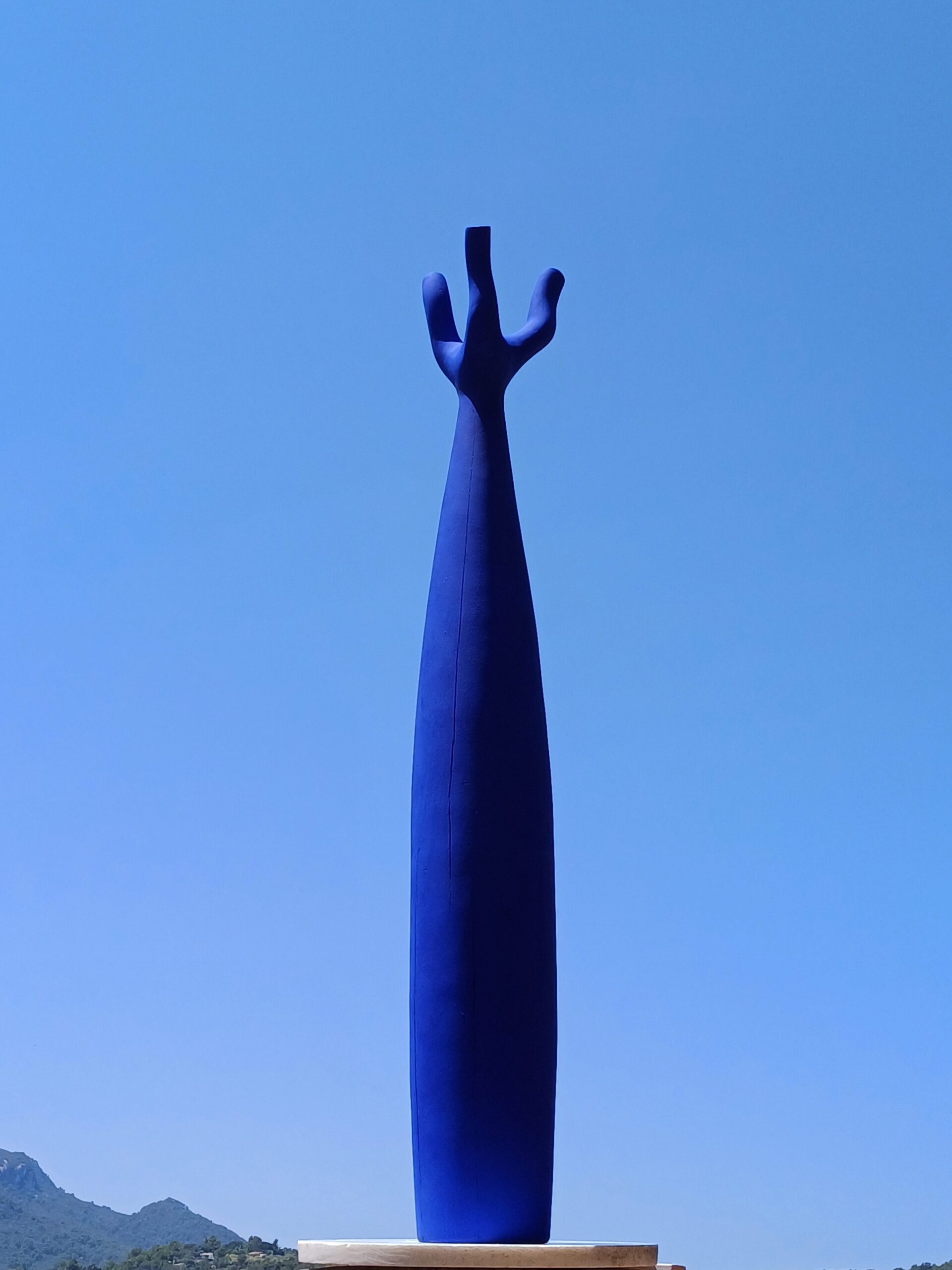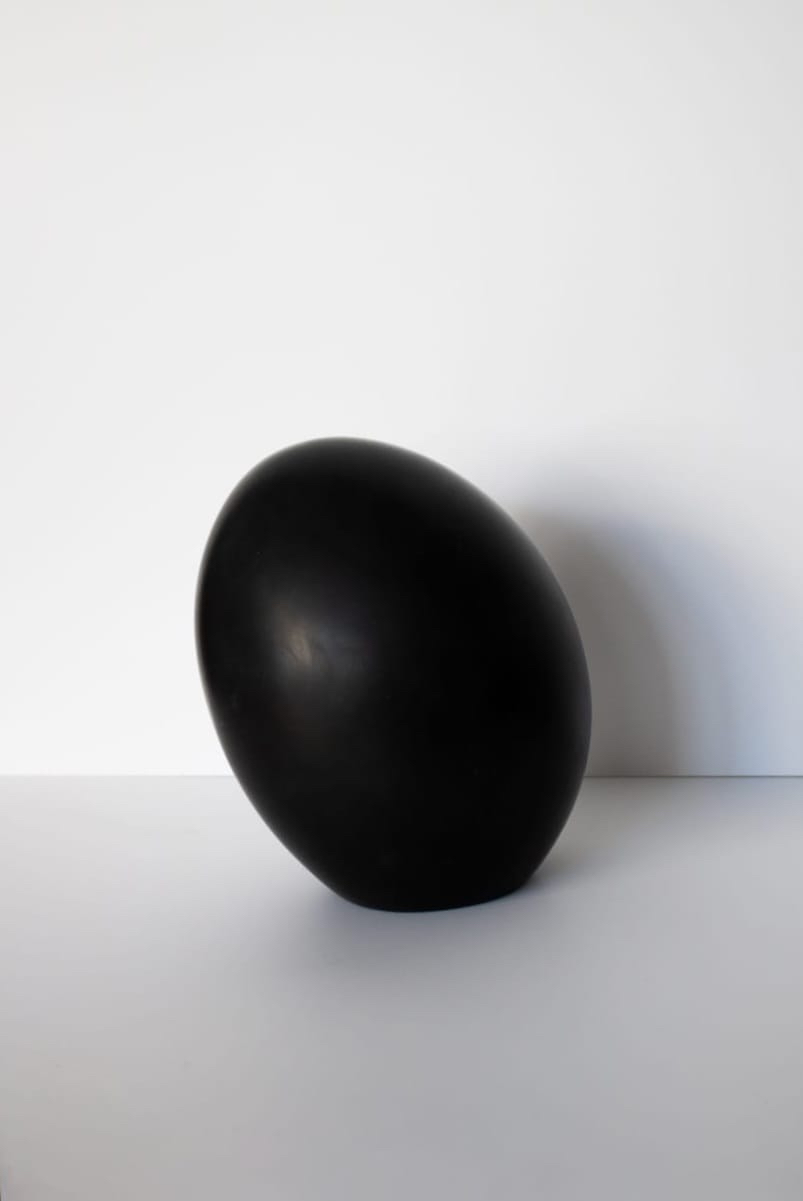Joan
COSTA
After completing his training in artistic ceramics at the Escuela de Artes Aplicadas y Officiaux Artísticos in Palma, Joan Costa (Palma de Mallorca, 1961) obtained a scholarship to study in Siena, where he confirmed his interest in sculpture. After passing the entrance exams to the Academy of Fine Arts in Carrara, he continued his studies there for 4 years, graduating with a degree in sculpture. He also completed an internship at the Beani&Cacia foundry in Pietrasanta. Strongly influenced early on by Talayotic sculpture, his first works feature large, gravid volumes rooted in the earth. He then gradually refined his style, reinforcing the lightness of his pieces, which are increasingly organic and ethereal, undulating and light.
This evolution has even led him to create metal mesh mobiles that move with the breeze and cast suggestive shadows, revealing his two-dimensional spirit.
He continues to use the marble with which he discovered his sculpting soul in Carrara, but never ceases to explore the possibilities of molding and using other noble materials such as bronze, aluminum, steel and wood. He even plays with small formats, creating exquisite jewels in precious metals.
Although from the outset he produced graphic works and paintings, often simple sketches of his sculptural work, from 2002 he began to use color and the purest chromatism, often obtained with lithographic inks, resulting in important abstract work, which complements his three-dimensional work.
He also uses the more complex language of installations to denounce the irreversible destruction of nature. Rooted in the Mediterranean, which is his source of inspiration, he discovers the wounds that our capricious and irresponsible civilization leaves as a cursed legacy, and tries with his scenographies to make us aware of the irreversible destruction of nature.
Despite its complexity, Joan Costa’s work has the coherence that only sincerity and total dedication can give to a few artists who manage to transmit, without being aware of it, a style all their own.
Ana Torán
